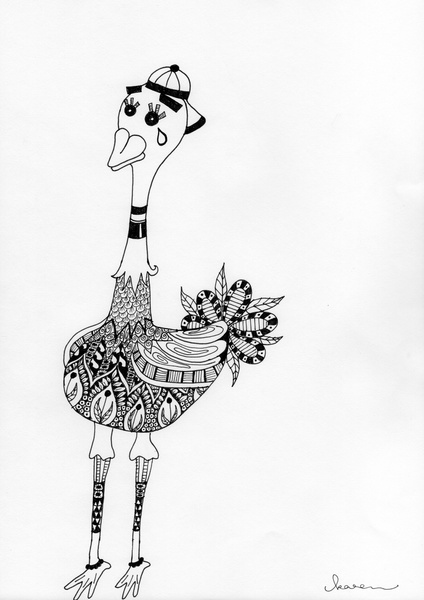
When a friend was hospitalized for appendicitis, people flocked to visit him at the hospital. When I was clinically depressed, some who knew it avoided me like the plague. But I completely understand -- it's natural for us to be afraid of the unfamiliar, including unfamiliar illnesses. And when it comes to depression, people are wary not because they are afraid it might be contagious (hey, many don't even recognize it as an illness!), but because they are afraid of saying the "wrong" thing.
A friend once apologized to me, "I'm sorry I haven't been reaching out to you or being there for you. I'm not like J -- I wish I were, but I'm not. But know that I've been praying for you, okay?"
At the time, I smiled and told him not to worry about it. I read between the lines and I read his facial expressions -- I knew what he was saying was that he wasn't good at empathizing and didn't want to do or say things that might end up aggravating matters. We exchanged hugs and parted ways for the remainder of the academic year. But that night I wept in my room. I wasn't sure why at the time; I cried over the silliest things after all.
I know why now. I felt abandoned by a friend. Sure, he wasn't my best friend, and I did have other close friends who were walking the journey with me, but when an individual walks out on your life, his/her absence can't be compensated by quantity. The next time I saw him, it would be the beginning of a new academic year, and I'd have already recovered over the summer. We hung out again and were friends once more. This was no isolated case. It happened again, and again, with different people.

But my friends are not bad people. They are wonderful people. They did not stop being my friend during depressive episodes because they were tired of me. In fact, I don't think they even intended to stop being my friend. And I'm sure they believe they were doing what was best for me. From their point of view, they were temporarily stepping out of my life so someone more "qualified" could step in to take better care of me. Someone who would have the right things to say, someone who perhaps have gone through the same thing I was going through, someone who could give good advice. Basically, someone who could empathize.
And yes, I wished I had people in my life who fit the above descriptions, and I was indeed blessed with at least one such individual, but it didn't erase the deep pain of being "left behind". And one thing I've come to realize over a few cycles of depression is this: depressed people don't need you to empathize; they just need you. A depressed person would rather have you say all the worst possible things, rather than not have you at all.
It is very difficult to understand what a depressed person is going through. That is an inescapable fact. But even a fellow depression fighter/survivor would not be able to understand completely, since disorders of the mind affect each individual as uniquely as his mind is unique.
But a general common theme is that the depressed individual experiences and perceives a reality different from that of the non-depressed individual. I remember despairing not because I didn't know if I would ever recover, but because I came to believe there was nothing from which to recover. I didn't believe I had a negative cognitive bias, but believed that it's others who had a positive cognitive bias, while I saw my existence for what it truly was.
Loved ones of those who are depressed, you have a very tricky and very important task of holding their hand and walking together, even though you are walking in different realities, until you are once more reunited at the end of the tunnel. This is very important because they need to be walking with someone who can see the light at the end of that tunnel. If you choose to wait to greet them on the other side, what if they never make it there?
Someone very dear to me had no experience whatsoever with depression. He bought himself a book on the topic (The Catholic Guide to Depression, which I've recommended multiple times in previous posts) in an attempt to understand what I was going through. It's safe to say that even after a year, he never came close to understanding, but what mattered was that he never stopped walking with me. He never got tired of me even when I got tired of myself. And he never stopped believing that God would deliver me even when I'd lost all hope. You have my eternal gratitude.
This post originally appeared on Under Reconstruction.
Have a story about depression that you'd like to share? Email strongertogether@huffingtonpost.com, or give us a call at (860) 348-3376, and you can record your story in your own words. Please be sure to include your name and phone number.